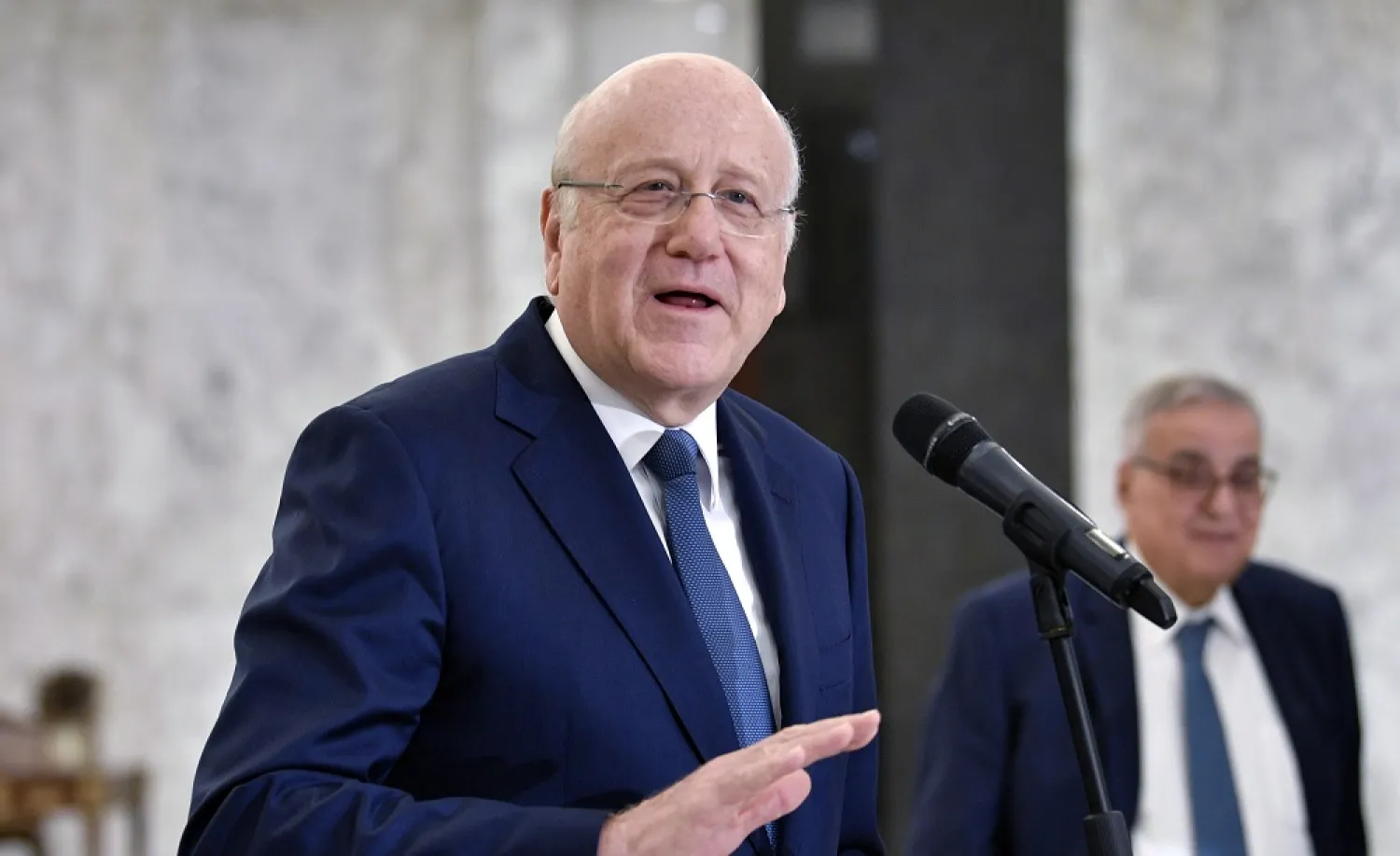Lebanese caretaker Prime Minister Najib Mikati arrived in Algiers on Monday to take part in the two-day Arab League summit that kicks off on Tuesday.
The summit is being launched on the same day that Lebanon plunged in presidential vacuum with the parliament failing to elect a successor to President Michel Aoun, whose term ended on Monday.
The parliament has failed on four occasions to elect a successor. Mikati will now head a government that assumes the duties of the president but in limited capacities.
The vacuum comes at a time when Lebanon has been crippled by a devastating economic and financial crisis since 2019 that has impoverished the majority of the population.
At the summit, Lebanon will object to some articles of the closing statement related to Iran’s meddling in Arab affairs, specifically its labeling of Hezbollah as a terrorist group. Algeria and Iraq share Lebanon’s reservations.
Lebanon justified its objection by explaining that Hezbollah is part of the government and has not been designated as terrorist by the United Nations. The label also goes against the Arab treaty on terrorist designations.
Lebanon demanded that any statements opposed to Hezbollah be removed from the closing statement in order for it to agree on it without reservations.
Mikati stressed that he was traveling to Algeria in spite of the massive challenges in Lebanon.
“Lebanon cannot be absent from any Arab summit as it is a founding and effective member,” he remarked.
Moreover, he said Lebanon was keen on steering clear of “the policy of axis”, adding: “We support everything that brings together the Arabs and cannot stand with anything that drives them apart.”
He expressed its strong rejection of “any foreign meddling in Arab affairs, even if they were Lebanese.”
“Lebanon’s official position is firm and clear in this regard,” he added. “We hope the Arabs will not forget us in our greatest time of need.”
Asharq Al-Awsat learned that the closing statement of the Arab summit will stress the importance of the “Lebanese people committing to their unity and civil peace that would keep them away from regional unrest.”
It will call on it to respect the Arab League charter and adopt an independent foreign policy that is based on distancing itself from regional conflicts, as well as the mutual respect of sovereignty and interests.









